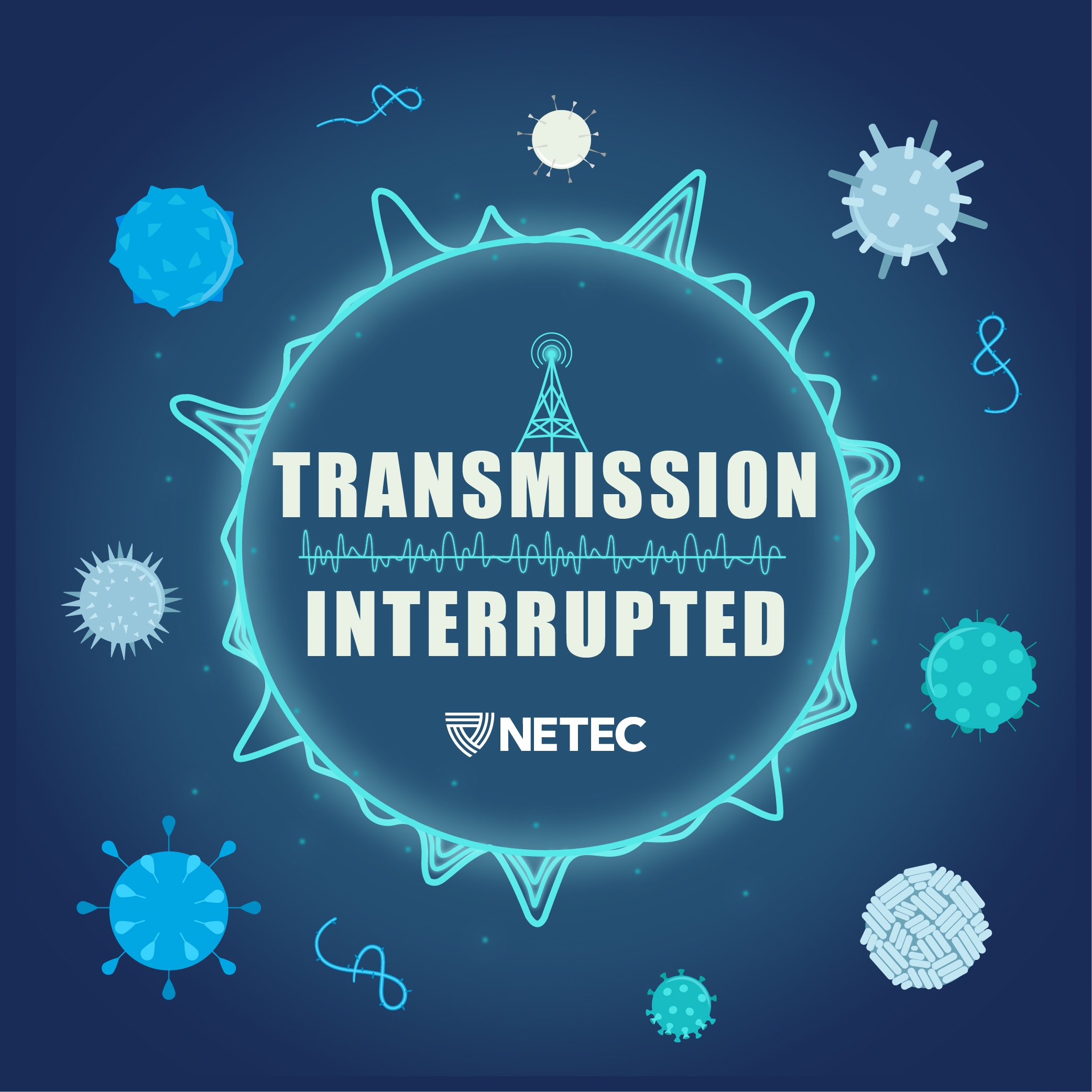In this episode of Transmission Interrupted, we continue our Pathogens in Pop Culture series with an intriguing dive into the world of special pathogens in literature. Dr. Caitlin Rivers, senior scholar at the Johns Hopkins Center for Health Security, joins us to examine the science behind the use of special pathogens in popular literature. We'll also examine the importance of adhering to reality or fictionalization when writing about pathogens and the power of storytelling in promoting public health practices.
Guest
Caitlin Rivers, PhD, MPH
Dr. Rivers is a Senior Scholar at the Johns Hopkins Center for Health Security and an Assistant Professor in the Department of Environmental Health and Engineering at the Johns Hopkins Bloomberg School of Public Health. She is an epidemiologist specializing in preparedness and response for epidemics, pandemics, and deliberately occurring events. Dr. Rivers recently returned from an appointment as founding associate director of the Center for Forecasting and Outbreak Analytics at the Centers for Disease Control and Prevention (CDC).
Dr. Rivers has testified in front of the United States Congress on several occasions and is a frequent advisor to senior leaders at the state and federal levels. Her writing has been published in the
Washington Post,
Wall Street Journal,
New York Times, and
USA Today.
Prior to joining the Center in 2017, Dr. Rivers worked as an epidemiologist for the US Army Public Health Center as a Department of Defense Science, Mathematics, and Research for Transformation Scholar. She also participated in a National Science and Technology Council Pandemic Prediction and Forecasting Science and Technology working group. Dr. Rivers serves as an Associate Editor of the journal
Health Security.
Dr. Rivers has been awarded the Johns Hopkins Bloomberg School of Public Health Faculty Award for Excellence in US Public Health Practice; the Department of the Army Achievement Medal for Civilian Service; and a Department of Defense Science, Engineering, Mathematics and Research Transformation Scholarship. In 2015, she earned a PhD in genetics, bioinformatics, and computational biology from Virginia Tech. Her doctoral research focused on computational epidemiology, specifically modeling emerging infectious diseases such as avian influenza A (H7N9), Middle East respiratory syndrome coronavirus (MERS-CoV), and Ebola virus disease for public health support using nontraditional, publicly available sources of data. Dr. Rivers received an MPH with a concentration in infectious disease from Virginia Tech in 2013 and a BA in anthropology from the University of New Hampshire in 2011.
Hosts
Lauren Sauer, PhD, MSc
Lauren is an Associate Professor in the College of Public Health, Department of Environmental, Agricultural, and Occupational Health, at the University of Nebraska Medical Center and Core Faculty of the UNMC Global Center for Health Security. She is an Adjunct Associate Professor of Emergency Medicine in the Johns Hopkins School of Medicine, and the director of the Special Pathogens Research Network.
She previously served as Director of Operations for the Johns Hopkins Office of Critical Event Preparedness. Lauren’s research focuses on human subjects research in bio-emergencies and disasters, in particular, ethical implementation of research and navigating the regulatory environment. The goal of her research is to provide health care facilities with the tools needed to conduct a clinical and operational research response in emergencies.
Rachel Lookadoo, JD
Rachel Lookadoo is an Assistant Professor in the Epidemiology department of the College of Public Health at the University of Nebraska Medical Center, and serves as the Deputy Director of the Center for Biosecurity, Biopreparedness, and Emerging Infectious Diseases. She also acts as the Director of Public Health Policy for the Water, Climate, and Health program at the University of Nebraska Medical Center. Ms. Lookadoo’s background is as an attorney, and she focuses on the various legal and regulatory issues that can arise in emergency preparedness and response. She specializes in public health impacts of climate change, healthcare surge events, isolation/quarantine law, crisis standards of care, infectious disease response, and general legal preparedness. Ms. Lookadoo also conducts emergency preparedness trainings and assessments for public health departments and healthcare facilities nationally. Ms. Lookadoo received her Juris Doctor degree from American University Washington College of Law, and her Bachelor’s degree from Baylor University.
Resources
Dr. Caitlin Rivers, Force of Infection:
https://caitlinrivers.substack.com/
Pathogens in Pop Culture: Jack Ryan, The Hot Zone, and Ebola:
https://netec.org/transmission-interrupted/pathogens-in-pop-culture-jack-ryan-the-hot-zone-and-ebola/
Pathogens in Pop Culture: Fungal Pathogens and The Last of Us:
https://netec.org/transmission-interrupted/pathogens-in-pop-culture-fungal-pathogens-and-the-last-of-us/
Worms Revived After 46,000 Years Frozen in Siberian Permafrost:
https://www.nytimes.com/2023/07/29/science/roundworm-nematodes-siberia-permafrost.html
Thawing Permafrost Exposes Old Pathogens—and New Hosts:
https://www.wired.com/story/arctic-spillover-risk/
Transmission Interrupted:
https://netec.org/podcast/
NETEC:
https://netec.org
NETEC Resource Library:
https://repository.netecweb.org
About NETEC
A Partnership for Preparedness
The National Emerging Special Pathogens Training and Education Center’s mission is to set the gold standard for special pathogen preparedness and response across health systems in the U.S. with the goals of driving best practices, closing knowledge gaps, and developing innovative resources.
Our vision is a sustainable infrastructure and culture of readiness for managing suspected and confirmed special pathogen incidents across the United States public health and health care delivery systems.
For more information, visit NETEC on the web at
www.netec.org.
NETEC Consultation Services
Assess and Advance Your Readiness for Special Pathogens with Free, Expert Consulting.
NETEC offers free virtual and onsite readiness consulting to help health care facilities and EMS agencies prepare for special pathogen events. Our targeted support services are delivered by experts selected and assigned to each inquiry based on the unique needs of your organization. Have a question? Ask a NETEC expert.
For more information on NETEC Consultation Services, visit:
netec.org/consulting-services.

